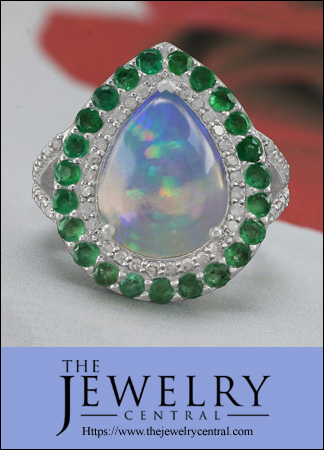Jewellery experts H&T has shared how to professionally clean your jewellery at home with just one household ingredient after research revealed that more than 20,000 growths of bacteria manifest on jewellery in one week of wear.
TikTok has been leading a cleaning revolution, with jewellery cleaning videos going viral and the hashtag #jewellerycleaning racking up over 9.8 million views.
As people look to reduce the spread of coronavirus, the trend has influenced google searches too. Searches for “how to make jewellery cleaner” up by 140% and “how to clean sterling silver jewellery” up by 130% in the last 12 months.
H&T are sharing their top cleaning hack to keep jewellery sparkling new but also clean and safe.
4-step process to effectively clean your jewellery at home
How to avoid having nasty germs on your jewellery and restore it to brand new
Step 1 – Mix your cleaning solution
To start, you’re going to need to create a cleaning solution. Mix a few drops of fairy washing up liquid with warm water. You will want to mix it into a dish or Tupperware pot of some kind which is big enough to fit a toothbrush in. To start, gently rub the surface of your piece then soak the jewellery in the solution for 30 minutes. If your item is a designer watch, skip this step.
Step 2 – Deep clean
Take your toothbrush and swill it around in the solution, ensuring that the bristles are wet. Then, gently scrub around the piece of jewellery using the brush, making sure to get into all of the engravings and corners. Once you are happy that you’ve scrubbed each area of the piece, you will need to rinse with clean, cool water. Try to make sure that you rinse off all of the suds so that no soapy residue is left over.
Step 3 – Polish
Once thoroughly rinsed, use a dry soft cloth that is preferably lint-free to polish your jewellery piece. For extra dirty pieces, create a fresh cleaning solution and use a new cloth dipped in the solution to damp polish each surface. You should repeat this process regularly for the best results.
Step 4 – Steam
To finish, boil your kettle. Using a pair of long-stemmed tweezers hold your jewellery carefully and at a safe distance from the spout as it comes to the boil to give your piece a steam finish.
Ben Jarrett from H&T commented “Although it’s important to keep your jewellery pristine to savour its value, it’s also duly important to regularly scrub and soak your pieces to keep them safe and clean from bacteria.
There are plenty of myths to cleaning jewellery and although they can restore shine to a degree, using things like coca-cola to clean your jewellery won’t remove the bacteria that attaches itself and could cause more harm than good. As pre-owned jewellery specialists we deep clean all jewellery we receive in-house and we’ve replicated our internal process which can be used by anyone to easily professionally clean their personal pieces at home.”
Top tips for keeping your jewellery pristine
H&T recommend cleaning your jewellery on a regular basis to get rid of dirt and debris, this will also help to keep your jewellery in pristine condition and maintain its shine. You can also prevent your jewellery from becoming dirty or losing its sparkle by:
- Removing rings whenever you wash your hand or when applying beauty products or plotions, or when cleaning
- Removing all jewellery when swimming, as both chlorine and salt water can damage your jewels
- Buff pearls with a soft cloth after each wear to remove body oils and perfume, to prevent the pearls from losing their shine and yellowing
- Wearing your silver! Don’t let your silver just sit in a box, as it becomes shinier the more it’s worn. Whenever you’re not wearing it, store your silver items in an anti-tarnish bag
- Get your valuable jewellery checked over by a reputable jeweller to ensure that the gemstones are in good shape and that the settings are secure
Disclaimer: This information has been collected through secondary research and TJM Media Pvt Ltd. is not responsible for any errors in the same.




























